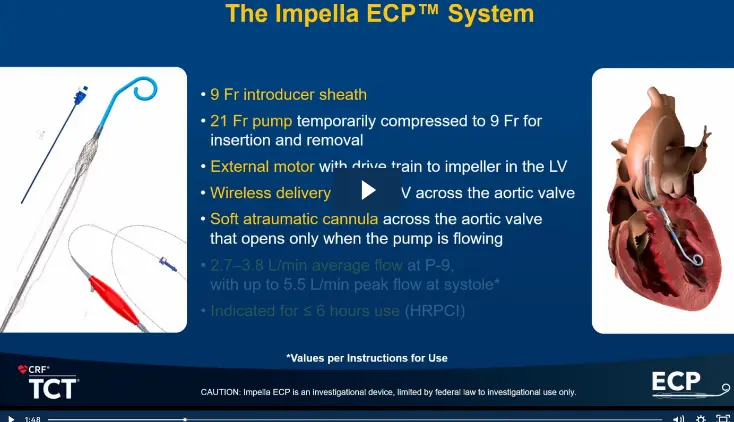Anticoagulation, Protected PCI
What Is Known in Pre-, Peri- and Post-Procedural Anticoagulation in Micro-Axial Flow Pump Protected Percutaneous Coronary Intervention?
by Jürgen Leick, Oliver Grottke, Mehmet Oezkur, Norman Mangner, Tommaso Sanna, Fadi Al Rashid, Christophe Vandenbriele
“The precarious balance between bleeding and thrombosis in patients with p-LVAD support is often the primary reason that patients’ outcomes are jeopardized,” write the authors of this article, which discusses anticoagulation strategies and anticoagulant management in the setting of Protected PCI. Topics include:
- Anticoagulant therapy with unfractionated heparin (UFH), direct thrombin inhibitors (DTIs) and dual antiplatelet therapy (DAPT)
- Bicarbonate-based purge solution to prevent purge blockage
- Monitoring by activated clotting time, partial thromboplastin time and anti-factor Xa levels
This article provides a standardized approach to the management of peri-interventional anticoagulation in patients undergoing Protected PCI.
“Meticulous (anti)coagulation management during Protected PCI is the key in reducing procedure associated complications in this critically ill patient group.”
This article provides a standardized approach to the management of peri-interventional anticoagulation in patients undergoing Protected PCI.
Anticoagulation is required in patients undergoing Protected PCI to counteract the activation of the coagulation system by the pump and to prevent blockage in the Impella® pump purge system. Systemic anticoagulation with UFH is most common in these patients, although some centers favor IV DTIs (eg, bivalirudin or argatroban). The authors also describe the use DAPT, consisting of aspirin and a P2Y12-receptor inhibitor (eg, clopidogrel, ticagrelor, prasugrel), in patients undergoing Protected PCI.
The Impella heart pump purge system typically employs heparin for anticoagulation and the varying levels of heparin from the purge solution impact the patient’s overall exposure to anticoagulation. Recent data suggest bicarbonate-based purge solution (BBPS) as an alternative to heparin in the Impella heart pump purge fluid to simplify anticoagulation management and support heparin-intolerant patients.
The authors explain that currently there are no prospective randomized controlled trials (RCTs) comparing anticoagulation strategies. They recommend adjusting anticoagulation on the basis of activated clotting time (ACT) in the cath lab or activated partial thromboplastin time (APTT)/anti-Xa point of care devices if available. They also recommend an anti-Xa guided UFH dosing protocol to control the thrombotic risk with parallel APPT measurements to lower bleeding risk in these critically ill patients. In addition, they write, “frequent (re)calculation of the total UFH dose (systemic + purge solution) as well as the body weight-adapted dose adjustment is highly recommended.”
These are the authors' opinions and findings based on their own knowledge and experience.
NPS-4072



